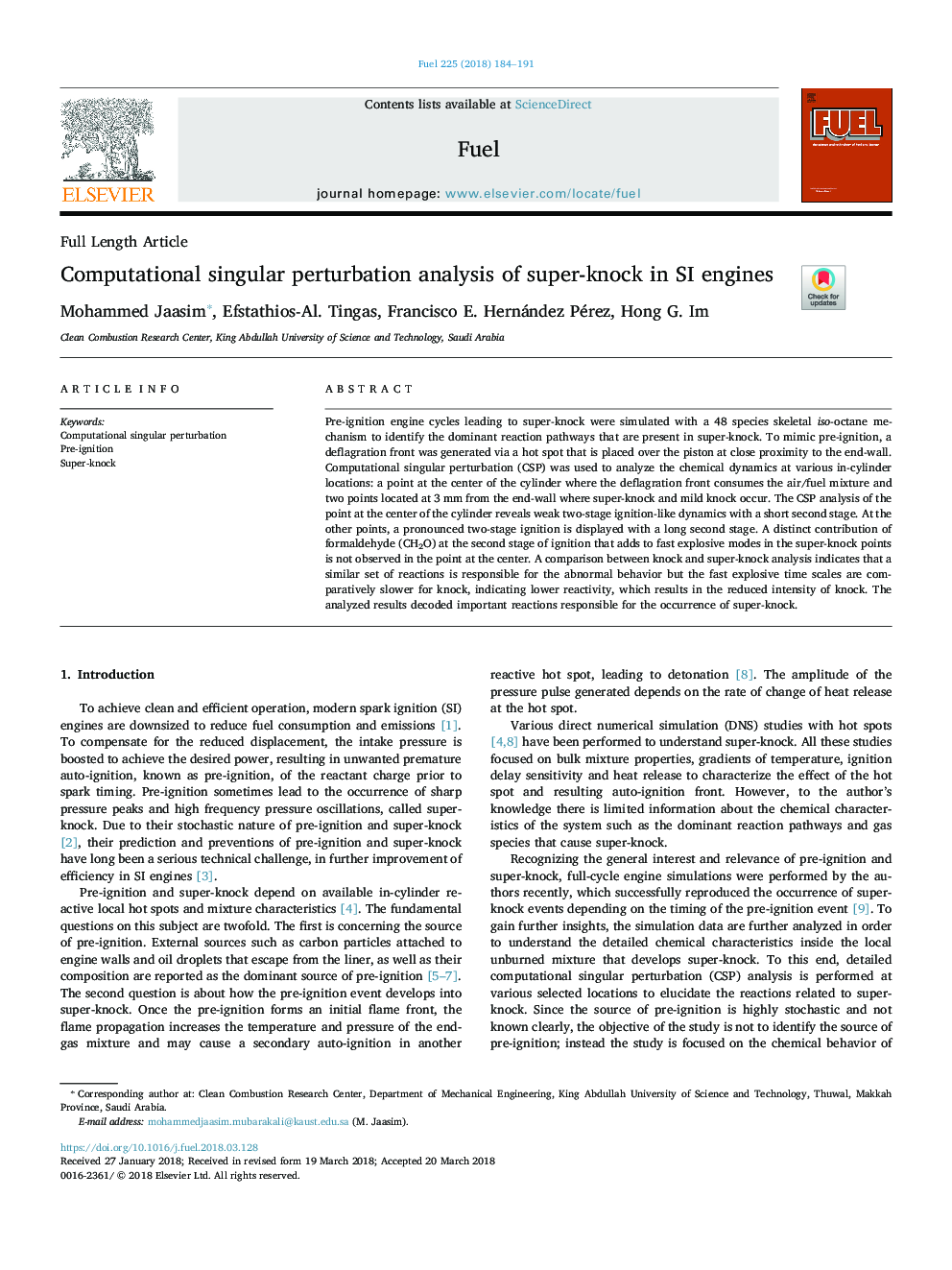| کد مقاله | کد نشریه | سال انتشار | مقاله انگلیسی | نسخه تمام متن |
|---|---|---|---|---|
| 6630993 | 1424939 | 2018 | 8 صفحه PDF | دانلود رایگان |
عنوان انگلیسی مقاله ISI
Computational singular perturbation analysis of super-knock in SI engines
دانلود مقاله + سفارش ترجمه
دانلود مقاله ISI انگلیسی
رایگان برای ایرانیان
کلمات کلیدی
موضوعات مرتبط
مهندسی و علوم پایه
مهندسی شیمی
مهندسی شیمی (عمومی)
پیش نمایش صفحه اول مقاله

چکیده انگلیسی
Pre-ignition engine cycles leading to super-knock were simulated with a 48 species skeletal iso-octane mechanism to identify the dominant reaction pathways that are present in super-knock. To mimic pre-ignition, a deflagration front was generated via a hot spot that is placed over the piston at close proximity to the end-wall. Computational singular perturbation (CSP) was used to analyze the chemical dynamics at various in-cylinder locations: a point at the center of the cylinder where the deflagration front consumes the air/fuel mixture and two points located at 3â¯mm from the end-wall where super-knock and mild knock occur. The CSP analysis of the point at the center of the cylinder reveals weak two-stage ignition-like dynamics with a short second stage. At the other points, a pronounced two-stage ignition is displayed with a long second stage. A distinct contribution of formaldehyde (CH2O) at the second stage of ignition that adds to fast explosive modes in the super-knock points is not observed in the point at the center. A comparison between knock and super-knock analysis indicates that a similar set of reactions is responsible for the abnormal behavior but the fast explosive time scales are comparatively slower for knock, indicating lower reactivity, which results in the reduced intensity of knock. The analyzed results decoded important reactions responsible for the occurrence of super-knock.
ناشر
Database: Elsevier - ScienceDirect (ساینس دایرکت)
Journal: Fuel - Volume 225, 1 August 2018, Pages 184-191
Journal: Fuel - Volume 225, 1 August 2018, Pages 184-191
نویسندگان
Mohammed Jaasim, Efstathios-Al. Tingas, Francisco E. Hernández Pérez, Hong G. Im,